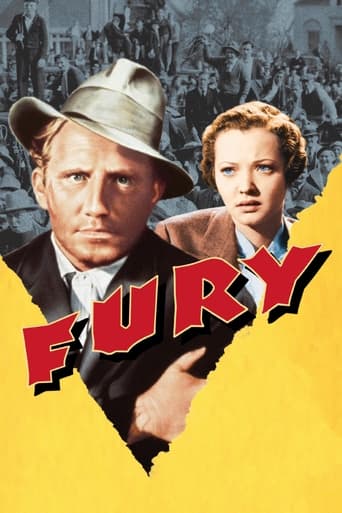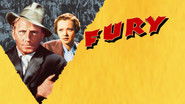Roger Burke
Eighty years after its first release, this story of mob violence in USA is a savage indictment of the American system of mob "justice" from the 1880s to the 1960s. The fictional events of this movie, based upon a true incident, took place in the 1930s. Produced by Joseph L. Mankiewicz, directed by Fritz Lang, it stars Spencer Tracy and Sylvia Sidney in the key roles; with an excellent supporting cast, this is a story that stands the test of time.I won't comment much on the plot and the story, both of which have been adequately addressed by the storyline on the main IMDb page, and a ton of detailed reviews here.However, without Lang and Mankiewicz on this production, the dramatic irony would not, I think, have been as effectively portrayed - for two reasons. First, Lang coming from a Germany where Nazism was ascendant, knew all too well what injustice was all about and how people can prostitute their principles for what is perceived as justifiable retribution. Second, Mankiewicz was a highly experienced actor/producer/director who has shown, throughout his career, that injustice in all its forms must be shown for the evil it is. With such a combination at the reel wheel, this movie was guaranteed to be hard-hitting.Lang's direction is very much on form, using lighting and shadow for full effect; using close up, quick editing in mob scenes; using the camera in extreme close up to ensure viewers note a particular item; and cross-cutting and inter-cutting scenes to heighten suspense. Not the first director to use those techniques, but Lang was a master at it. For the most part, the script and dialog are excellent. My only critique centers upon the courtroom scenes and dialog which, by today's standards, are somewhat stagy; the repartee, between the prosecution and defense counsels, is particularly so, too often for this viewer. And the very last scene, seemingly preachy and even corny, which involves a long verbal exchange between the judge (Burton) and one of the main characters, can only be fully appreciated in the context of the times: a long history of lynching across the USA, an economy in the midst of a Great Depression and a nation on the cusp of another world war.For Lang enthusiasts, Fury is a must see movie, despite the presence of a couple of handy coincidences, an improbable result with the use of dynamite and a glaring loose end - at the very end. Still, this is a movie that should be seen by all, and one I heartily recommend. Eight out of ten.April 24, 2015
LeonLouisRicci
There isn't Much going on in this Small Town so when there is a Celebrity Suspect Caught in a Widely Known Kidnapping Case the Citizens Spiral out of Control in Their Dimwitted Zeal and Decide to Unleash some Mob Justice.A Towny Leaps on a Table in a Bar and Shouts..."Let's go have a little fun!"So with Ropes and Self-Righteousness on Their side its off to the Jail and a Burning, Bombing, "Lynching", takes place. In this Odd Film from MGM (they had absolutely no confidence in it), Director Fritz Lang Begins in America with His Display of Social Commentary. Something the Studio Usually Shunned.Spencer Tracy is Fine as a "Jekyll and Hyde" Everyman and Sydney Sylvia has an Expressive Face with Deep Concern and Exudes Empathy. Lang is a Stylist and here He Manages some Expressionistic Shots that Add to the Odd Feel of the Film. The Good Cast is Cloaked in Melodrama and the Movie is a Dark, Artistic Display of Depression Era Desperation and Bad Behavior.It's a Scathing Indictment of Unconstitutionality and the Populace Running Amok. A Barber says..."I had to read the Constitution to become a Citizen...you didn't have to because you were born here."The Film is Dense in its Societal Concerns as the Country was Experiencing the Pains of the Depression and the World was Waiting for War. They didn't have to Wait Long and Lang Knew what was Coming and was Determined to Shout Out to Anyone who would Listen, Using His Symbolic Sensibilities and a Flare for the Dramatic.Overall, it is a Movie that is Thought Provoking through the Lens of Lang and Predicted the Use of Electronic Surveillance Footage to Convict Criminals. Fritz Lang's Films were Almost Always Ahead of Their Time and the Director was Forever Pushing it to the Limit with more Artistry then Believability and that was part of His Appeal as an Auteur.
kidboots
"Fury" was a hard hitting story about mob violence and not the sort of film usually associated with MGM. Metro was extremely uneasy about what to do with the movie - first they were going to release it, without any publicity as part of a double bill (can you imagine it!!). Then after the editor of "The Hollywood Reporter" caught it and spoke favourably about it, MGM was forced to release it in a first run New York theatre - but they still had no faith in it. Even though it didn't set box offices on fire, everyone connected with it - MGM, Fritz Lang, Spencer Tracy and Sylvia Sidney garnered accolades and prestige. Taken from a story called "Mob Rule' by Norman Krasna, who found inspiration in the real life incident of two kidnap killers who fell victim to vigilante justice in San Jose, California."Fury" begins by detailing the tribulations of Joe Wilson (Spencer Tracy), garage man and his fiancée, teacher Katherine (Sylvia Sidney). After a year of separation, they finally see their way to marriage and Joe drives south to meet Katharine at a designated diner. When Joe is stopped by a police road block, what seems to be a case of mistaken identity (he fits the description of a child kidnapper - especially Joe's love of salted peanuts), snowballs, when through small town gossip, an angry lynch mob gathers at the jail. Rushing the jail, the mob set it on fire while Katherine, who has literally ran to the town after learning of his arrest, looks on in horror.Sylvia Sidney was the one actress who could match the intensity of Spencer Tracy and she has several fine scenes - especially in the court. Joe did not perish in the fire but escaped, but only makes himself known to his brothers (Frank Albertson and George Walcott). Behind his cloak of invisibility, he controls proceedings, forcing them to put the 22 rabble rousers on trial for murder. Katherine, believing Joe is dead, is to testify - but in the elevator she recognises the coat that Tom is wearing - it is the same one she patched for Joe the night they parted. Sidney's scenes in court, where she has to testify on oath that she saw Joe die - even though she now realises that he is alive, are possibly the most compelling she has ever performed. In my opinion, this is one of Tracy's best performances but Sylvia is right up there with him. Tracy's acting only served to strengthen his new found position at MGM. Even though many at the time were disappointed with the Hollywood style ending, I liked it. And the look on Bruce Cabot's face when Tracy calmly walks into court is priceless!!!Highly, Highly Recommended.
jc-osms
...produces monsters. I remember this Fritz Lang classic from my youth and wondered if it could match up to my memories and capture me as it did those 30-40 years ago. I'm a huge fan of Lang's work, especially his unjustly overlooked, in my opinion, Hollywood movies, where he benefited from the advances in film technology, star actors and of course the relative freedom to make the films that he wanted without Nazi persecution.I've never marked a film "10" on IMDb before but cannot deny "Fury" this score. Like before, it just blew me way with the bravery and topicality of its subject matter (I've read up on the source-story of the Brooke Hart lynching in the US of only a few years previously), the imagination and verve of the cinematic devices that Lang employs to get his story across and last but not least some superb acting, most obviously from Spencer Tracy as the "ordinary Joe" (his name has to be deliberately chosen), but also from the greatly underrated Sylvia Sydney as his girl and in the nick of time, his redeeming conscience.The narrative is taut-tight, albeit with just a few humorous injections to keep the story on a human level. Lang wields his large cast with consummate ease, particularly the mob scene itself and the extensive courtroom scene which follows it. Tracy conveys his transformation from in-love happy-go-lucky journeyman Joe to hate-consumed avenging angel brilliantly with Sydney the calm to his storm who brings him back to reason just in time for the fates of the lynch mob on trial. The ensemble acting is great too, no character overplayed.There are so many memorable scenes to relate which demonstrate the maestro's sure touch - just a few amongst many - the juxtaposition of the rumour-mongering townsfolk with cackling hens, the use of close-ups particularly on Sydney's sad but honest face, the shot of a grizzled, hardened, transformed Tracy in the doorway before his grieving brothers are just some which come to mind but there are so many other Expressionist touches to savour.Some might argue the banality of Tracy's tell-tale giveaway which exposes the truth or the speed of the change of mood from dark to light right at the end, or even the plot similarities to his earlier, epochal "M" but I'll afford Lang all the cinematic licence he needed to put across this potent anti-lynching message (with obvious overtones of the Nazi thuggery then prevalent in his native Germany).For me then, this film is what great cinema is all about and as you can tell I just can't praise it highly enough.





